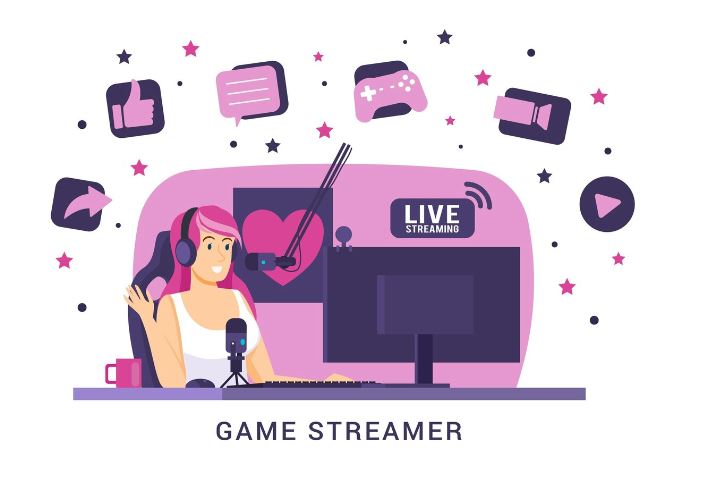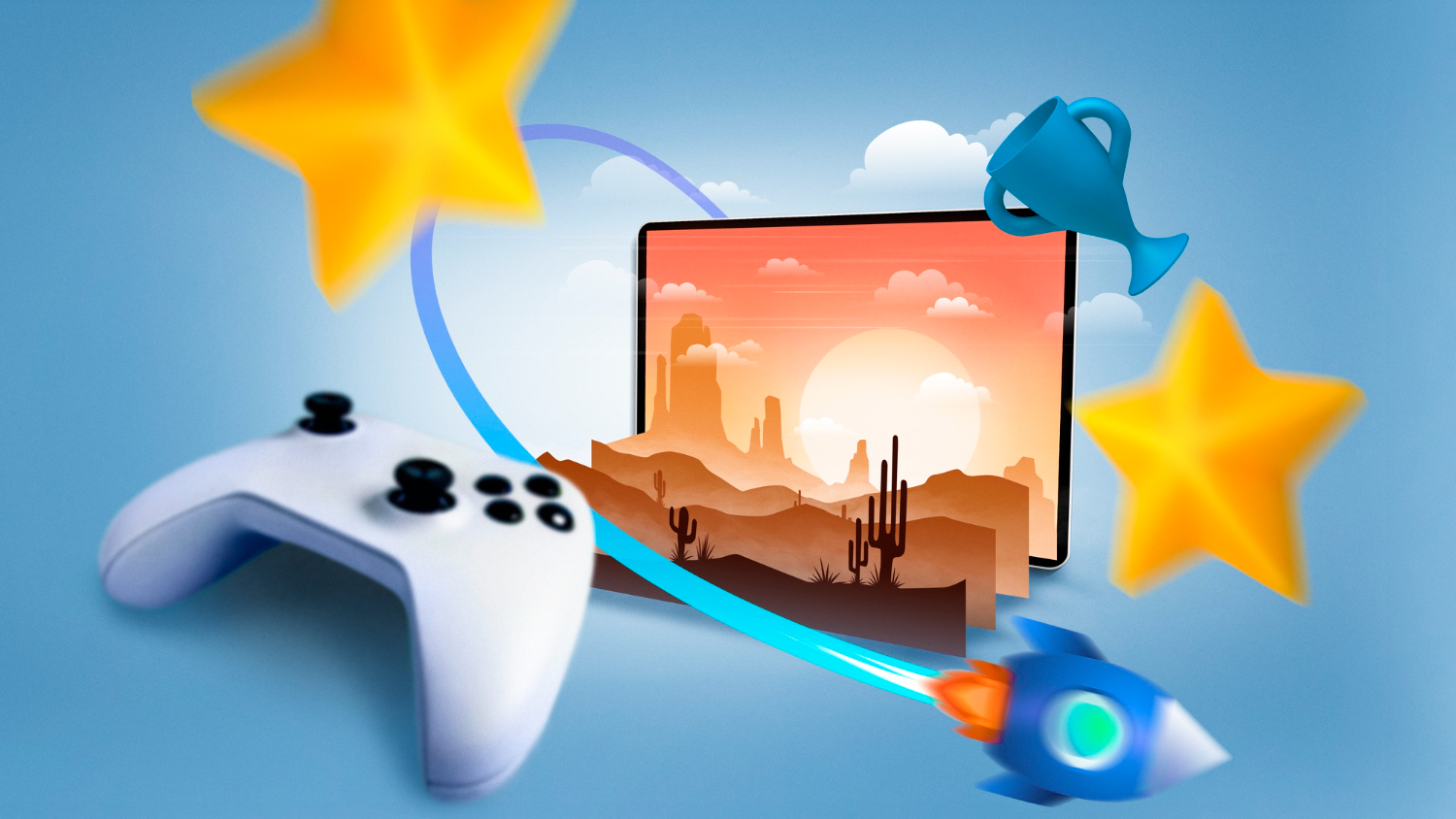Esports is greater than only a development—it is a international phenomenon that is remodeling the best way we take into consideration competitors, leisure, and the gaming business. What was as soon as a distinct segment pastime has grown right into a multi-billion-dollar business, attracting hundreds of thousands of followers, skilled gamers, and company sponsors. Esports has not solely revolutionized how video games are performed, but it surely’s additionally opened up new profession alternatives, from professional players to streamers, commentators, and entrepreneurs.
On this information, we’ll discover the thrilling world of esports, from its humble beginnings to its meteoric rise, and what the long run holds for this ever-evolving business. Whether or not you’re an off-the-cuff gamer, a die-hard fan, or somebody inquisitive about this digital revolution, get able to dive deep into the aggressive world of esports!
What Is Esports?
Esports, brief for digital sports activities, refers to organized, multiplayer online game competitions, notably between skilled gamers, individually or as groups. These competitions are held at regional, nationwide, and international ranges, attracting large audiences each on-line and in bodily arenas. In style video games embrace **League of Legends**, **Dota 2**, **Counter-Strike: World Offensive**, **Fortnite**, and **Name of Obligation**, however the vary of video games that fall below esports continues to develop.
Esports shares similarities with conventional sports activities—there are tournaments, sponsorships, followers, {and professional} groups. Nonetheless, the motion takes place within the digital realm, with athletes competing from computer systems or consoles. This distinctive mix of competitors and know-how is what makes esports stand out.
The Evolution of Esports
The roots of esports may be traced again to the early days of video gaming within the Nineteen Seventies and Nineteen Eighties, when gamers would collect in arcades to beat excessive scores. Nonetheless, the business started to take form within the late Nineteen Nineties with the rise of PC gaming and the web, permitting for extra organized competitions in titles like **StarCraft**, **Quake**, and **Counter-Strike**.
As broadband web grew to become extra accessible and gaming consoles developed, esports exploded in reputation. Video games like **League of Legends** (launched in 2009) and **Dota 2** (launched in 2013) constructed devoted participant bases and turned aggressive gaming right into a spectator sport. Streaming platforms like Twitch gave followers the power to observe their favourite players dwell, fueling the speedy development of the business.
In the present day, esports is a world powerhouse, with main tournaments providing prize swimming pools within the hundreds of thousands, skilled leagues modeled after conventional sports activities, and audiences that rival these of main sporting occasions.
In style Esports Video games
There are various video games that dominate the esports panorama, every with its personal fanbase, aggressive scene, and distinctive gameplay. Listed here are a number of the hottest esports titles:
1. League of Legends
Style: Multiplayer On-line Battle Enviornment (MOBA)
What makes it widespread: Developed by Riot Video games, League of Legends (LoL) is without doubt one of the most iconic video games within the esports world. Two groups of 5 gamers compete to destroy the opposing staff’s base, utilizing technique, teamwork, and fast-paced gameplay. The **League of Legends World Championship** attracts hundreds of thousands of viewers yearly, with prize swimming pools reaching over $2 million.
2. Dota 2
Style: MOBA
What makes it widespread: Recognized for its complexity and depth, **Dota 2** has one of many largest esports prize swimming pools, with **The Worldwide** event providing greater than $40 million in 2021. Dota 2 is a strategic, team-based sport the place two groups of 5 gamers compete to destroy one another’s base.
3. Counter-Strike: World Offensive (CS:GO)
Style: First-Individual Shooter (FPS)
What makes it widespread: **CS:GO** is a tactical shooter the place groups of terrorists and counter-terrorists battle to finish aims comparable to bomb planting or hostage rescue. The sport’s exact mechanics, teamwork, and technique make it a staple of the esports world, with main tournaments just like the **ESL Professional League** and **Intel Excessive Masters** attracting international consideration.
4. Fortnite
Style: Battle Royale
What makes it widespread: **Fortnite** took the world by storm with its battle royale mode, the place 100 gamers combat to be the final one standing. The sport’s vibrant graphics, constructing mechanics, and free-to-play mannequin have made it a large success, notably amongst youthful audiences. The **Fortnite World Cup** affords multi-million-dollar prize swimming pools and has turned a number of gamers into family names.
5. Name of Obligation
Style: FPS
What makes it widespread: The **Name of Obligation** franchise has lengthy been a favourite amongst aggressive players. With the introduction of the **Name of Obligation League** in 2020, the sequence has cemented its place within the esports world. The fast-paced motion, strategic gameplay, and fixed updates make it an exhilarating spectator sport.
6. Overwatch
Style: FPS/Group-Based mostly Shooter
What makes it widespread: Blizzard’s **Overwatch** brings team-based fight to life with distinctive characters (referred to as heroes), every with particular talents. The **Overwatch League** (OWL) was one of many first esports leagues to undertake a city-based franchise mannequin, much like conventional sports activities groups, and it has helped deliver esports to a wider viewers.
The Esports Ecosystem
Esports is extra than simply enjoying video games—it is a complete ecosystem made up {of professional} groups, tournaments, sponsors, media retailers, and hundreds of thousands of followers all over the world. Right here’s a breakdown of the most important parts of the esports business:
1. Gamers and Groups
Esports athletes are extremely expert gamers who prepare for hours day by day to compete on the highest stage. Many gamers be a part of skilled groups that supply salaries, sponsorships, and different advantages. Groups comparable to **Fnatic**, **Cloud9**, and **Group Liquid** have change into internationally acknowledged manufacturers with enormous followings.
2. Tournaments
Tournaments are the guts of esports, with a number of the greatest occasions happening in sold-out arenas all over the world. Main tournaments embrace **The Worldwide (Dota 2)**, the **League of Legends World Championship**, and the **CS:GO Majors**. These tournaments provide hundreds of thousands in prize cash and entice viewership that rivals conventional sports activities.
3. Streaming Platforms
Streaming is a vital a part of esports, permitting followers to observe their favourite gamers dwell from anyplace on this planet. Platforms like **Twitch**, **YouTube Gaming**, and **Fb Gaming** have change into central hubs for esports content material. Gamers, groups, and tournaments stream their video games, providing dwell commentary, behind-the-scenes content material, and interactive chat experiences for viewers.
4. Sponsors and Partnerships
Esports has attracted main company sponsors, together with manufacturers like **Nike**, **Purple Bull**, and **Intel**. Sponsorships present essential funding for groups, gamers, and tournaments, and in return, firms achieve publicity to a younger, tech-savvy viewers. This industrial side of esports has fueled its speedy development and legitimization as a significant leisure business.
5. Followers
Esports wouldn’t exist with out its passionate fanbase. Thousands and thousands of individuals watch dwell streams, attend tournaments, and comply with their favourite groups religiously. Esports followers are extremely engaged, and the community-driven nature of the business permits them to attach instantly with gamers and content material creators by means of social media and streaming platforms.
Careers in Esports
Esports isn’t just for skilled players—there are many profession alternatives throughout the business. Listed here are a number of the key roles you possibly can pursue in esports:
- Skilled Participant: Competing in tournaments and leagues on the highest stage. Professional gamers can earn salaries, sponsorships, and prize cash.
- Coach or Analyst: Serving to groups develop methods, enhance efficiency, and analyze opponents.
- Content material Creator/Streamer: Constructing a private model by streaming gameplay, creating movies, or offering commentary on platforms like Twitch and YouTube.
- Esports Commentator (Shoutcaster): Offering play-by-play commentary and evaluation throughout dwell esports occasions.
- Occasion Organizer: Managing and organizing esports tournaments, leagues, and different occasions.
- Advertising and Sponsorship Supervisor: Creating partnerships with manufacturers and serving to esports organizations safe sponsorship offers.
- Esports Journalist: Masking esports information, interviews, and evaluation for web sites, magazines, and broadcast media.
The Way forward for Esports
The way forward for esports seems brighter than ever. The business is anticipated to surpass $1.6 billion in income by 2024, with viewership numbers rivaling conventional sports activities like basketball and soccer. With the rise of 5G, improved streaming know-how, and larger investments from mainstream manufacturers, esports is poised to develop even additional.
Along with increasing viewership, we will count on to see extra skilled leagues, faculty esports applications, and new video games coming into the aggressive scene. The mixing of digital and augmented actuality (VR/AR) can also add new dimensions to the esports expertise.
Esports is not only a subculture—it’s a world motion that’s right here to remain.
Conclusion: The Rise of Esports
Esports has developed from humble beginnings right into a powerhouse business that blends competitors, know-how, and leisure. It affords thrilling alternatives for gamers, followers, and companies alike. As esports continues to develop and achieve mainstream recognition, its potential appears limitless. Whether or not you are thinking about enjoying, watching, or working in esports, now could be the proper time to become involved on this dynamic and quickly increasing world.
Often Requested Questions (FAQs)
What’s the greatest esports sport?
League of Legends is extensively considered one of many greatest esports video games globally, with hundreds of thousands of gamers and viewers and a large annual World Championship occasion. Different widespread video games embrace Dota 2, CS:GO, and Fortnite.
How a lot do skilled esports gamers make?
Skilled esports gamers can earn anyplace from a couple of thousand {dollars} to hundreds of thousands per 12 months, relying on their ability stage, staff, and event efficiency. Prime gamers additionally earn by means of sponsorships, streaming, and content material creation.
How do you get began in esports?
To get began in esports, you might want to select a sport, hone your expertise, and be a part of beginner tournaments or on-line leagues. Constructing a presence on streaming platforms and connecting with the esports neighborhood may also show you how to break into the business.
Can esports gamers compete professionally for a very long time?
Whereas esports gamers usually begin their careers of their late teenagers or early twenties, the excessive calls for of coaching and competitors can result in shorter careers than in conventional sports activities. Many gamers transition to teaching, streaming, or content material creation after retiring from skilled play.
What are the most important esports tournaments?
Among the greatest esports tournaments embrace The Worldwide (Dota 2), the League of Legends World Championship, the Fortnite World Cup, and the CS:GO Majors. These occasions provide large prize swimming pools and entice hundreds of thousands of viewers worldwide.
Able to dive into the world of esports? Whether or not you are a gamer, fan, or entrepreneur, there’s a spot for you on this thrilling business!














